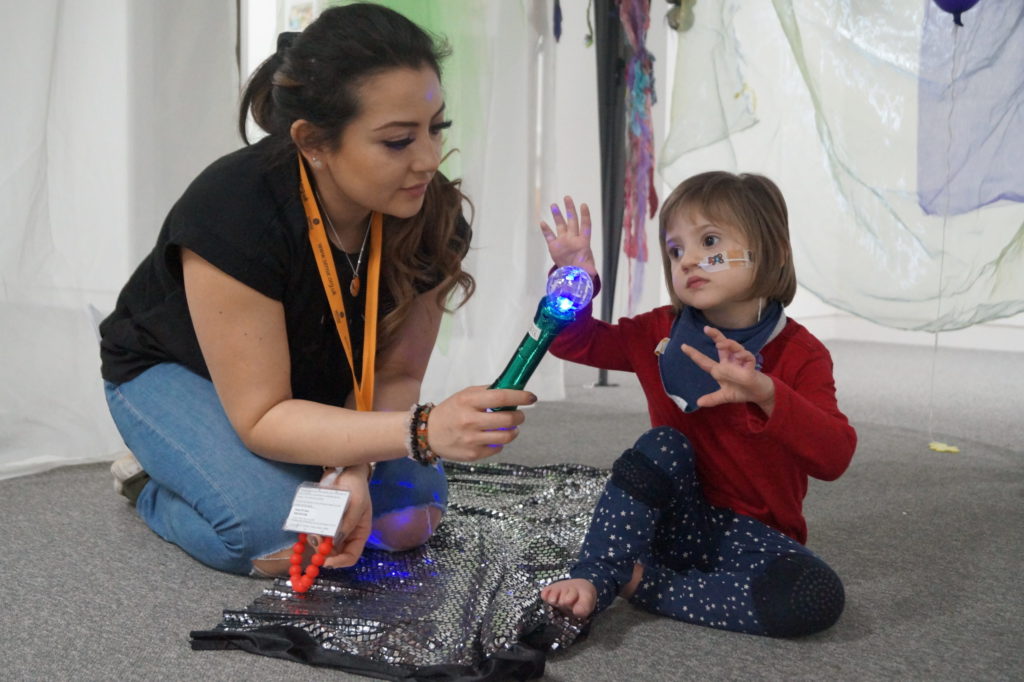Sense responds to children’s social care consultation

Over the past few weeks the Government have been consulting on their plan for children’s social care “Stable Homes, Built on Love”. Sense have submitted a response to make sure deafblind children and those with complex disabilities are not once again forgotten in social care.
We welcome the governments focus on children’s social care; it is long overdue.
Whilst there were positives within the plan, we couldn’t ignore the fact that disabled children and their families were once again not given the recognition they need.
We said this when it was published and it’s the central theme of our response to the consultation.
There is clear lack of detail throughout the plan. Little is put forward on how they will improve social care for children with complex disabilities.
The plan itself is centred around “6 pillars” which have been designed to “transform children’s social care”.
Sadly, none of the 6 pillars make an explicit reference to disabled children. Some of them sound good when you read them, but it is important that these words are turned into action not just generic statements about putting love back into social care.
There just isn’t enough put forward to convince us this plan will change the lives of children with complex disabilities and their families.
Good social care matters for children and their families
Many children with complex disabilities and their families rely on social care support to live day to day.
Social care for children with complex disabilities can take many forms. It might be through daily support at home, assistive aids or equipment, or short breaks and respite care. Deafblind children and their families have additional rights to specialist support under the Deafblind Guidance.
Our research shows that there are over 318,000 children aged 0-17 living with complex disabilities in the UK today. Government data shows that only 49,680 disabled children are designated as children in need. This means potentially thousands of children are not getting the support they could be entitled to.
While not all children with complex disabilities will need to access social care, we are worried many children with complex disabilities are not getting the help they need.
Social care plays a vital role in allowing children with complex disabilities and their families to live fulfilling lives and too often it is deprioritised in light of the other pressures that children’s social care faces.
Sadly, support is often only there when families hit crisis point and the process can be hard rather than supportive. Families tell us they face trouble accessing support, and when they finally get that, it is not always delivered.
What we’ve called for in our response
Our response covers a few key themes that are unlikely to surprised many readers. We believe that there are number of elements that need to be addressed as this plan moves forward into action:
- Funding: it goes without saying that any reforms need the resource for them to be implemented. Ambitions must be matched with resource to have impact. We know that there is a current shortfall on the system as it stands, and we want to additional funding that is ringfenced for the needs of disabled children.
- Simpler systems for families to navigate and more accountability: all too often we hear from families who are stuck between different services, departments and teams. We need to see a simpler system with support for parents and accountability on providers and local authorities to ensure they are delivering their duties.
- Support for all the family: at Sense we know how important it is to support the whole family of disabled children including parents and siblings. We’d like to see more of this included in future plans, including a commitment for the Short Breaks Innovation funding to continue on a permanent basis.
- Access to specialist support: there needs to be investment in services and workforce to support all disabled children no matter their needs. Specialist support services need to be resourced and able to meet duties under the Deafblind Guidance and other key legislation.
- Joining it all up: The Department for Education (DfE) are also currently undertaking many other reforms in Special Educational Needs and Education (SEND). Children and families often access SEND and social care support so it is crucial that both work effectively together. We want to see more joined up work on these reforms.
What happens next?
Our response has been submitted so now it’s over to the Department for Education to review what we and others have said. We hope that they will see the value and importance of what we’ve raised and will consider it as they develop their plans for implementation.
In the meantime, we will be continuing to engage with the Department on our priority issues and working in partnership with other organisations to achieve change.

